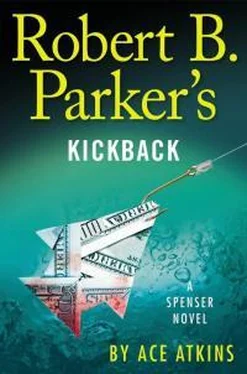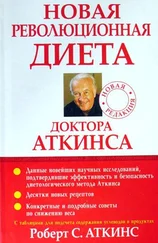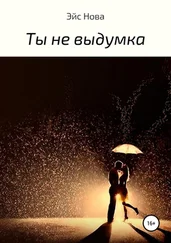“Vermeer,” she said. “Always wanted to go to Amsterdam.”
“It’s nice,” I said. “But a friend bought them at an exhibit at the Fine Arts Museum.”
“One day.”
“When the kids are grown?”
“Shit,” she said. “I got grown kids and grandbabies. And I got a sorry-ass pension and a sadder retirement.”
“At least you love your work.”
“Some days,” she said. “When you make things right.”
“Doesn’t last long,” I said.
“Never does,” she said. “Only live for the moment. Order is an illusion.”
“Who said that?”
“Probably some dead white man.”
I smiled at her. She smiled back. Our first meeting at the university seemed eons ago. “Would you like some coffee?”
She shook her head and reached into a large black leather purse for a reporter’s notebook. She took her time flipping to the right page before glancing up at me. “You mentioned the judges were living beyond their means?”
“Yep.”
“So I took that as a clue,” she said. “I checked out the property records of how much they paid for their homes.”
“So did I,” I said.
“Nice digs,” she said. “Almost a mil for Scali. Two-point-five mil for Callahan.”
I leaned back into my chair and set my feet onto the edge of the desk. The features section for the Globe lay spread out where I’d left it. Arlo & Janis. “Perhaps they have family money?”
“Maybe,” Iris said. “Each house in the name of their wives.”
“Maybe it’s a statement.”
“Or maybe they’re hiding something,” she said. “So I checked into both of them. Victoria Scali and Barbara Callahan own a travel agency in the city. With another office in Tampa.”
“Okay,” I said. “So the wives are more successful than the men.”
“Do you want me to explain my second husband?”
“Do I want you to?”
“Nope,” she said. “Last I heard, the son of a bitch was living in Costa Rica.”
“Maybe the women are a tax dodge?”
“The business is small,” she said. “But they keep an office in a high-rise off Atlantic.”
She read off the address and the name of the business. Being a trained detective, I wrote both down. “Okay,” I said.
“I guess it doesn’t mean much.”
“Or maybe it means everything,” I said.
“How do we know?”
“I’ll work some investigatory magic,” I said, feigning my Liberace movements on the keyboard. Or more likely Dave McKenna.
“And if that doesn’t work?”
I nodded. “Keep pushing till I piss someone off.”
“You’re coming back to Blackburn,” she said. “Aren’t you?”
“Wild horses couldn’t deter me.”
“It ain’t the wild horses I’m worried about,” she said. “It’s the Blackburn PD and Scali’s goons.”
“If something happens to me, do you promise to write a glowing obit?”
“If only the paper had the space.”
Are you okay?” Dillon said.
“I’m fine,” the boy said.
“You don’t look fine,” Dillon said. “And you were talking to yourself when you were asleep.”
“I’m cold is all,” he said. “I just can’t quit shaking.”
The boy lay curled under the single sheet, teeth chattering. Dillon had come down from the top bunk and pulled up a chair. He’d remembered seeing Dillon after he went to the infirmary and walked back to the pod. No one spoke to him but Dillon. He heard some of them whispering about what had happened to Tony Ponessa. A lot of them talking revenge.
“You whipped that guy’s butt,” Dillon said.
“He started it,” the boy said.
“And you finished it, too,” Dillon said. “Nobody thought that was going to happen.”
The boy felt his teeth chattering as he curled tighter into a ball. Dillon disappeared onto the top bunk and brought down a blanket and a pillow. The boy hadn’t earned either yet.
“Take it.”
“I’m okay.”
“I don’t need it,” Dillon said. “I’m not the one sick.”
“I’m not sick.”
“Is that what they told you?” Dillon said. They were the only two in the bunk room, all the other boys down on the first floor of the open pod watching TV. He could hear the tinny sounds of the television and the murmur of kids talking. “They’re bullshit.”
“I’m okay.”
“That son of a bitch made you swim out in the harbor, for fuck’s sake,” Dillon said. “What did you think was going to happen? Your damn skin had turned blue when they finally pulled you out. You nearly choked out on that cold water.”
“Yeah?” the boy said, laughing. “But I got the stick.” The laugh turned into a cough.
Dillon stood and reached out, feeling the boy’s head. When the boy looked up at Dillon’s face he wasn’t pleased with what he saw. Dillon was now yelling for the guards, telling them they needed to get in here, now.
“What are you doing?” he said. “Jesus, you’re going to get me killed.”
“They don’t want to treat you because they’d have to admit what they’ve done. Guard!”
“I’m okay,” the boy said, shaking.
“Get the fuck in here,” Dillon said, yelling. “Guard!”
“I’m fine,” the boy said, wrapping himself in the warm blanket as tight as he could. If only he could get warm.
30
I met Jake Cotner the next afternoon inside the Blackburn cotton mill museum. I paid my six-buck admission and walked inside the weave room, the old looms shaking, long ropy belts turning spindles hung from the ceiling. I couldn’t tell if they were actually making stretches of fabric or if the mechanizations were for show. Either way, the machines made a lot of noise and radiated an impressive pulse of energy. The mill room stretched out as far and wide as a gridiron. A couple of old-timers in overalls roamed the floors, checking the belts and century-old machines. I looked for Lyddie, but it must’ve been her day off.
Cotner wore the same letterman’s jacket as before with his jeans and work boots. The jeans had been cuffed a couple inches. I didn’t know kids did that anymore, but the look suited him, as did the buzz cut. He was standing at the protective rail, watching the machines hammering in the big open space. I walked up next to him. In all the noise, I’d surprised him, and he flinched a bit when I touched his back.
“Jesus Christ,” he said.
“Nope,” I said. “Just Spenser.”
“Mr. Spenser.”
“Just Spenser.”
“Can we make this fast,” he said. “I can’t get in any trouble. I didn’t mind meeting with you the other day, but now, you know, with all that crap with Beth. You know. Well, I just don’t want to get arrested or something.”
“Have you spoken to Beth?” I said.
He shook his head.
“Cops talk to you?”
He shook his head.
One of the old guys was on a ladder, threading the belt back through a spindle. He looked like he’d done this maybe a thousand times before and could rework the loom in his sleep. He had on thick glasses and a red bandana tied around his neck. He used the bandana to wipe the back of his neck like prospectors in old Westerns.
“How about Ryan?” I said. “Did he find her?”
“Yeah,” he said. “He said Beth was leaving town. Her mom made her. She has family down in Plymouth. I think she’s going to switch schools and everything. What the hell happened?”
“What do you think?”
“I think the cops made a deal with Beth to make her drug charges go away.”
Читать дальше







![Дэни Аткинс - Время любить [litres]](/books/401165/deni-atkins-vremya-lyubit-litres-thumb.webp)




